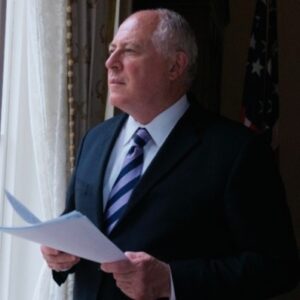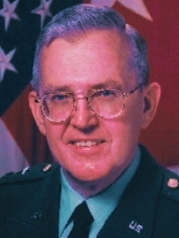Lloyd J. Austin III: Decorated Military Career – A Showcase of Awards and Honors

Introduction
Lloyd J. Austin III stands as a prominent figure in the annals of the United States military and national security, carving a distinguished career marked by resilience, leadership, and strategic acumen. Lloyd J. Austin Born into a background that shaped his values and aspirations, Lloyd J. Austin’s journey from a military commission to becoming the Secretary of Defense reflects not only personal triumphs but also a commitment to safeguarding the interests of the nation. This exploration delves into the multifaceted life of Lloyd Austin, examining his early years, military career, transition to civilian leadership, and the enduring impact of his policies on U.S. defense. As we navigate through his achievements, challenges, and contributions, a comprehensive understanding of Austin’s legacy emerges—a legacy intertwined with the complex fabric of American military history and national security.
Early Life:
Lloyd James Austin III was born on August 8, 1953, in Mobile, Alabama, into a family that would lay the foundation for his future commitments and values. Raised in a household that valued discipline and service, Austin’s early life was shaped by the principles of duty, honor, and responsibility.
Coming from a modest background, Austin’s family instilled in him a strong work ethic and a sense of community. His upbringing emphasized the importance of education as a means of advancement, fostering a drive for knowledge and achievement that would characterize his later endeavors.
Austin’s early years were marked by a dedication to academic excellence, earning him entry into the United States Military Academy at West Point. This pivotal moment not only marked the commencement of his formal education but also laid the groundwork for a remarkable journey through the ranks of the U.S. military.
The crucible of his early life experiences, rooted in family values and a commitment to education, set the stage for Lloyd J. Austin III’s future leadership roles in the military and his eventual contributions to the nation’s defense and security.
Education Background:
Born on August 8, 1953, in Mobile, Alabama, Lloyd J. Austin III’s educational journey paved the way for his distinguished military career. He earned a place at the United States Military Academy at West Point, graduating in 1975 and commissioning as a second lieutenant in the U.S. Army. Austin furthered his education with a master’s degree in counselor education from Auburn University, emphasizing his commitment to continuous learning. His educational foundation not only provided academic excellence but also instilled the values crucial for leadership in the armed forces.
Military Career:
Commissioned as a second lieutenant in 1975 after graduating from the United States Military Academy, Lloyd J. Austin III’s military career epitomizes leadership and dedication. Rising through the ranks, he commanded the 10th Mountain Division and played crucial roles in Iraq and Afghanistan. Notably, Austin served as the commander of U.S. Central Command (CENTCOM), demonstrating strategic brilliance in overseeing operations across the Middle East and Central Asia. His commitment to the well-being of service members and exemplary leadership style left an indelible mark, culminating in his retirement in 2016. Austin’s military legacy stands as a testament to his unwavering dedication to national defense and the welfare of those under his command.
Also Read: https://theboiworld.com/james-forrestal-passing-enigma/
Personal Life:
Lloyd J. Austin was born in the Aletia Taylor Austin family and got married to Charlene Banner in 1980 and this couple had two sons Reginald Hill (stepson); and Christopher Hill (stepson)
National Defense Secretary:
Lloyd J. Austin III served as the United States Secretary of Defense, appointed by President Joe Biden and confirmed by the Senate on January 22, 2021. with an illustrious military career, became the first African American to hold this position. His nomination required a congressional waiver due to the seven-year retirement requirement for military officers.
As Secretary of Defense, Austin focused on addressing global challenges, maintaining military readiness, and navigating strategic competitions. While the information is based on the situation as of January 2022, it’s advised to verify the latest developments for the most up-to-date details on Lloyd J. Austin III’s role as Secretary of Defense.
Challenges And Responsibilities:
Challenges:
Geopolitical Complexities:
Navigating complex global geopolitical challenges, including strategic competition with peer adversaries and addressing regional conflicts.
Military Readiness:
Ensuring the preparedness and effectiveness of the U.S. military in the face of evolving threats, including cyber warfare, terrorism, and potential conflicts.
Budgetary Constraints:
Managing the Department of Defense budget amidst fiscal constraints, making strategic decisions on resource allocation while maintaining military capabilities.
Technological Advancements:
Adapting to rapid technological advancements, such as emerging cyber threats and the integration of artificial intelligence in military operations.
Pandemic Response:
Overseeing the military’s role in responding to global health crises, as exemplified by challenges presented by the COVID-19 pandemic.
Responsibilities:
National Security Strategy:
Developing and implementing national security strategies to protect the United States and its interests globally.
Also Read: https://theboiworld.com/bill-blair-2024-public-leadership/
Military Operations:
Leading the Department of Defense in planning and executing military operations to address security challenges and maintain a strong defense posture.
Budget and Resources:
Managing the defense budget, allocating resources efficiently, and ensuring the readiness and modernization of the armed forces.
Civilian-Military Relations:
Maintaining strong civilian control over the military, fostering collaboration with civilian leadership, and ensuring the military’s role aligns with democratic principles.
International Partnerships:
Cultivating and maintaining relationships with allies and international partners to address shared security concerns and strengthen diplomatic ties.
Lloyd J. Austin III, in his role as Secretary of Defense, faced the complex task of balancing these challenges while fulfilling the responsibilities integral to safeguarding the nation’s security and advancing its interests on the global stage.
Awards And Honor:
Throughout his distinguished military career, Lloyd J. Austin III garnered recognition through numerous awards and honors, underscoring his exceptional leadership and contributions to the United States Armed Forces. Some of the notable accolades include:
- Defense Distinguished Service Medal
- Silver Star
- Legion of Merit
- Bronze Star Medal
- Purple Heart
- Joint Service Commendation Medal
- Combat Infantryman Badge
- Humanitarian Service Medal
These awards and honors collectively attest to Lloyd J. Austin III’s extraordinary service, leadership, and valor throughout his military career. Each accolade represents a distinct facet of his commitment to the defense of the United States and its values.
Written By: Shalik Khan







